PLC Common Issues and How to Avoid Them
For industrial automation to progress, PLCs have become essential. They are frequently employed across automated systems because of their capacity to expand functionality at a lower cost. Not only do they have the talent. PLCs are able to give both simple and complex instructions to a variety of systems.

Like any other equipment, PLCs are likewise prone to breaking and having their own faults. An entire PLC cabinet full of devices, blinking lights, and wires can seem intimidating. However, occasionally the issue could be one that can be remedied quickly and effortlessly. So before you contact a technician to come repair your system, here are a few easy troubleshooting you can undertake that might save your organization some time (and money).
Tips and basic information to troubleshooting a PLC:
I/O Failure (Input/Output)
Probably the most frequent PLC failure is this one. This is typically caused by a lack of connection between the internal and external circumstances. This normally gets addressed by finding out what relationship is not being created and isolating the issue.
Signal Interference
Either electromagnetic interference (EMI) or radio frequency interference (RFI) causes this to happen. When a PLC is located extremely close to a sizable motor or another equipment that generates an electromagnetic field, EMI can happen. A gadget being struck by lightning might potentially result in an EMI problem. When a PLC spends a lot of time adjacent to a transmitting device, ERFI occurs. A PLC's functioning will eventually deteriorate because of both interferences. The best course of action is to place your PLC far from any potential sources of EMI or RFI. If it isn't an option, your PLC has other alternatives for protective housings.
Corrupt Memory
Interference typically causes memory problems. They frequently occur when the PLC's power is abruptly turned off and not properly restarted. Simple data backups to storage devices are a common preventative practice. Keeping PLCs away from regions of interference as well as locations with high temperatures and humidity is a useful protective precaution.
Loss of Power
Machines in industrial automation require steady electricity to function. It's typically a good idea to have a backup or other power source to address the problem should a power failure occur in the case of a sudden power loss (power grid breakdown, rolling blackouts, etc.).
Ability to Communicate
The capacity of PLCs to interact with one another as well as with other devices like HMIs and drives is a crucial feature. Due of their speed and dependability, Ethernet cables are typically used by all these devices to communicate. A communication fault may be avoided by making sure that wires are securely connected, out of the way of any obstacles, and not placed anyplace that would cause them to crimp or become cut.
In Conclusion
Machines function properly, without interruption, around-the-clock. Even the best-maintained facility system will inevitably fail at some time, though, thus this cannot be avoided. Nevertheless, by taking the aforementioned precautions, you may reduce the amount of deterioration that your PLC system experiences and prolong its lifespan.
If you need assistance in finding the drive, motor, or servo system you require, just let us know. We have access to a worldwide supply chain network and can locate exactly what you need. We also offer a wide range of other parts and components for a variety of machines and equipment, including:
- Spindle Drives
- Spindle Drive Motors
- Monitors
- Controls
- Circuit Boards
- Power Supplies
- Rotary Tables
- Other Motors
Our qualified customer service representatives can help assist you in locating parts for your machines and equipment, provide you with a quote, and help you set up maintenance, repair, or installation services from one of our qualified technicians. To further demonstrate that you are aware of what to look for, contact us at (956) 246-7411 or send an email to services@cnctoolsllc.com if you need any further assistance.
